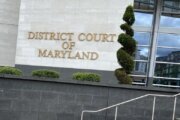A dozen social and racial justice groups said Thursday that the federal effort to require a sale or ban of TikTok would suppress speech from minority communities by disrupting a critical tool many use to establish connections online and advocate for causes.
The legal brief, submitted to a federal court in Washington, comes as TikTok and its Beijing-based parent, ByteDance, are waging a consequential legal battle against the law, which would disrupt the platform’s U.S. operation to address bipartisan concerns about the popular app.
Thursday is the deadline for third-party groups to file documents supporting the social video platform and eight TikTok creators who sued the U.S. government last month. The two cases have since been consolidated.
The legal filing submitted Thursday came from a diverse set of organizations, including the New York-based Asian American Federation, a Washington-based nonprofit called the Hispanic Heritage Foundation, a Virginia-based transgender advocacy organization named the Calos Coalition and the Muslim Public Affairs Council.
In the brief, the groups wrote that TikTok has been instrumental to advocacy around various issues, such as reproductive rights and opposition to anti-LGBTQ+ legislation around the country.
They say the platform has empowered diverse communities in online conversations and placed “marginalized views squarely before new audiences,” enabling them “to break down stereotypes that persist in America and globally.” The brief claims this happens because the platform gives communities increased reach and the ability to bypass “entrenched hierarchies” found on other social media platforms.
TikTok has also received support from other organizations, which have echoed arguments the company has made in its lawsuit against the government.
On Wednesday evening, seven other free speech-oriented advocacy groups submitted a brief to the court, arguing the law would infringe on the First Amendment and make it impossible for users to associate on the app. Some digital rights groups like the Electronic Frontier Foundation have previously expressed support for the company or sided with it in a similar lawsuit against Montana last year.
The libertarian public interest firm Institute For Justice and Reason Foundation also filed a brief Thursday supporting TikTok’s free speech claims. Both groups have received donations from the Susquehanna Foundation, a sister organization to the trading firm co-founded by prominent ByteDance investor and Republican megadonor Jeff Yass.
The federal law, which President Joe Biden signed as part of a larger foreign aid package in April, is the U.S. government’s attempt to deal with long-running national security concerns about TikTok’s presence and reach in the U.S.
Lawmakers from both parties and some administration officials have said TikTok’s current ownership structure poses a threat since ByteDance operates under the laws of the Chinese government. They say Chinese authorities could force ByteDance to hand over U.S. user data or sway public opinion towards Beijing’s interests by tinkering with the algorithm that populates users’ feeds. However, the government hasn’t provided public evidence to support either claim.
The racial and social justice groups argue in their filing that anti-Asian sentiments clouded discussions around the law. Many TikTok creators have also opposed the measure, which marks the first time the U.S. has singled out a social media company for a potential ban. It gives ByteDance nine months to sell TikTok, and a possible three-month extension if a sale is in progress.
However, both companies have argued they would have to shut down TikTok’s U.S. operation by Jan. 19 because continuing to operate in the U.S. wouldn’t be commercially, technologically or legally possible if forced to divest.
Last week, TikTok filed another legal brief giving its account of negotiations it held with the Biden administration since 2021. The company said it presented a draft agreement in August 2022 but claimed the administration “ceased any substantive negotiations” with its attorneys after that.
The Justice Department said in a statement last week that it’s looking forward to defending the recently enacted legislation, which addresses “critical national security concerns in a manner that is consistent with the First Amendment and other constitutional limitations.”
The Cato Institute, a Washington-based libertarian think tank, is also expected to file a legal brief supporting TikTok. Yass currently serves as Cato’s vice chair.
Copyright © 2025 The Associated Press. All rights reserved. This material may not be published, broadcast, written or redistributed.







